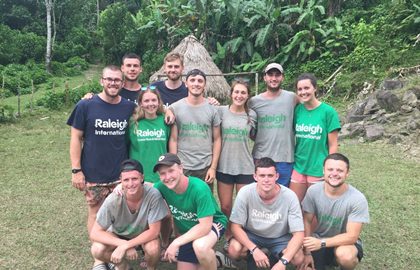In this blog post Lizzie, a Stage 4 Civil Engineering student, tells us all about her involvement in the Raleigh International expedition to Costa Rica…
It is true that nothing in the lead up to departure can prepare you for your Raleigh expedition. After a long and weary 24 hours of travelling (not to mention the 3am start), a tired bunch of 11 engineers arrived in San Jose. Exhausted, we longed for a bed and a goods night sleep… how naïve we all were.
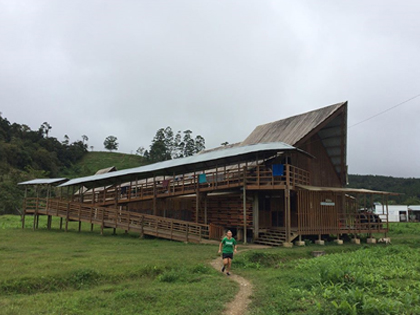
We were taken to a school sports hall where we spent our first night on the floor, before being taken to the training base location at Grana de Ore. Spirits were running high after being treated to a traditional Costa Rican breakfast of Gallo Pinto, (little did we know we would be subject to porridge for the next 40 breakfasts). We completed our four days of training, giving us an insight into what was in store for us.
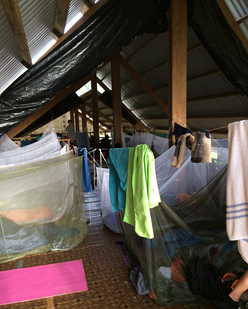
Tsirbäklä
Next stop, Trisbäklä A two-hour minibus ride, followed by a four-hour trek through the jungle and across some questionable bridges, rucksacks fully laden, we arrived in Tsirbäklä – home for the next three weeks. A quick duct tape job of our ‘bedroom’ (recommendation: don’t miss off the kit list, it will become your best friend against spiders and cockroaches), mosquito nets up, roll mats down and we were ready for our first meal, rice and beans.
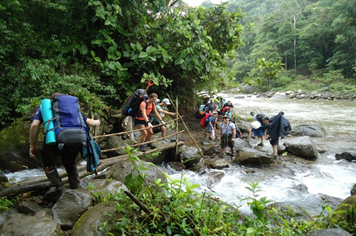
Panic not, whilst rice was the staple component of every meal, including one breakfast, we had a cook sent from heaven who treated us to 4pm snacks every day of the most delicious pancakes and empanadas – food was no issue. Every effort was made to make the environment as homely as possible for everyone, with cleaning rotas, ‘family’ dinner times, more card games than I’ve ever played and competitive quizzes. I settled into the routine surprisingly quickly and was ready to tackle the school build.
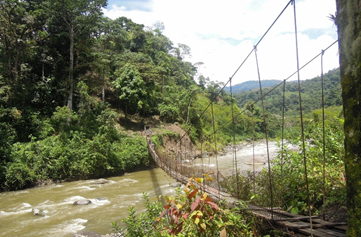
Construction Phase
The main purpose of the expedition was to construct a kindergarten, extending the educational opportunities of the community we were staying in. The process was hard work, starting first with excavating and levelling out the ground, using tools very different to those in the UK and struggling with unpredictable weather conditions.
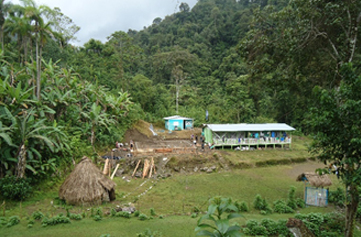
Teamwork and determination saw us onto the next stage: building the frame. I personally found this difficult due to my sufficient lack of experience in carpentry skills. With encouragement and tips from my peers, I soon had the hammer work nailed! Up went the frame and we began the concrete mixing and pouring, for the floor. Again, very strenuous but incredibly rewarding as work was fast paced by this point and the final result was in sight. Half a splash of paint to the building (the school children were to finish painting the rest of the building) and voilà, a fully constructed kindergarten was successfully delivered within three weeks. Sounds easy writing it out, but there were many challenges and lessons learned along the way.
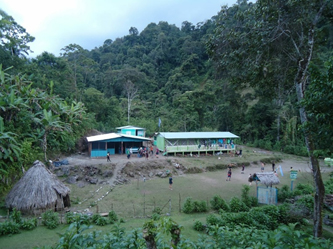
The greatest challenge was the large team, comprising people from different backgrounds, nationalities and languages, working in such a small space. It very quickly became apparent that patience and communication were vital for success. My interpersonal skills increased and I learnt how to compromise in finding solutions, as this was very different to usual solutions at home . The words “Mañana Mañana” will forever ring in my ears, reminding me of the laid back and relaxed attitude of the locals.
Community Integration
Whilst our main purpose in Tsirbäklä was to deliver the school, it was also an opportunity to integrate with the local community, experiencing their culture and learning why the project was important to them. From house visits to adopting Pablo the local dog, we truly felt welcomed and appreciated during our stay. Weekly football matches between the community and our team turned very competitive as we showcased some of Newcastle’s finest football talent, successfully taking the final win.
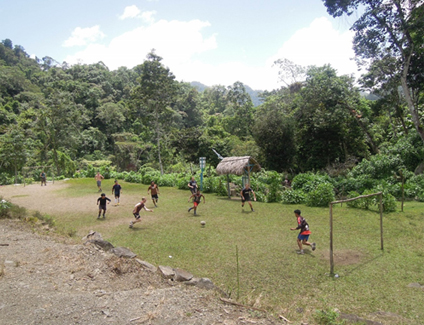
Teaching English lessons every morning to the school children and visiting the homes of community members gave us a real insight into the community lifestyle and into the opportunities that would be further available as a result of our work here. Our final day concluded with a community celebration where we sang, ate and played together. It was at this point where the realisation of how much the school meant to the community hit me; I have brought this home with me and remain very self-aware of opportunities that surround me, conscious not to take things for granted.
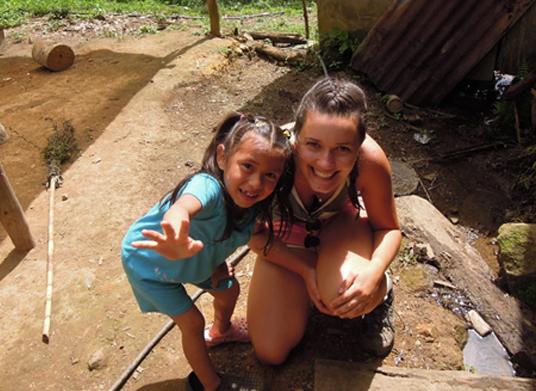
Trek Phase
The final phase of the expedition concluded with a six-day trek, covering 75km across the mountainous region. This was the hardest physical and mental challenge I have ever faced, pushing me out of my comfort zone and achieving things I didn’t think were possible. The relationships formed with my team were surprisingly strong over such a short amount of time; we supported, encouraged and helped each other to reach our goal. The views will remain some of the most breath-taking, spectacular memories I have experienced.
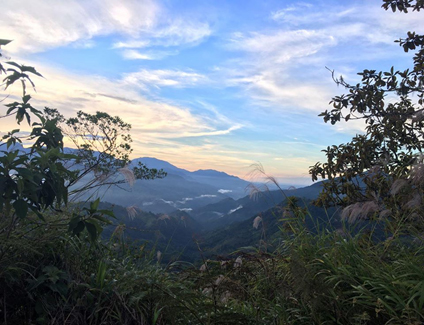
Home
Upon my return, I have been asked countless times for a single highlight of my trip. This is impossible for me; I am unable to single out one aspect of such as amazing experience. The number of memories experienced in only five weeks in such an amazing country are endless, and there isn’t a single one that hasn’t left a lasting story in my mind.
Whilst clichéd, I find myself profoundly agreeing with the famous Saint Augustine saying, “The world is a book, and those who do not travel, read only one page”. I simply wish that everyone could receive the fantastic opportunity of completing a Raleigh expedition.
If you would like to find out more about studying Engineering at Newcastle visit our webpages here: https://www.ncl.ac.uk/engineering/undergraduate or chat to one of our students on our Unibuddy instant messaging platform (scroll to the bottom of the page).
